August 4, 2024
Preventing Substance Use In Military Kids
Discover how military kids conquer substance use risk with resilience and support.

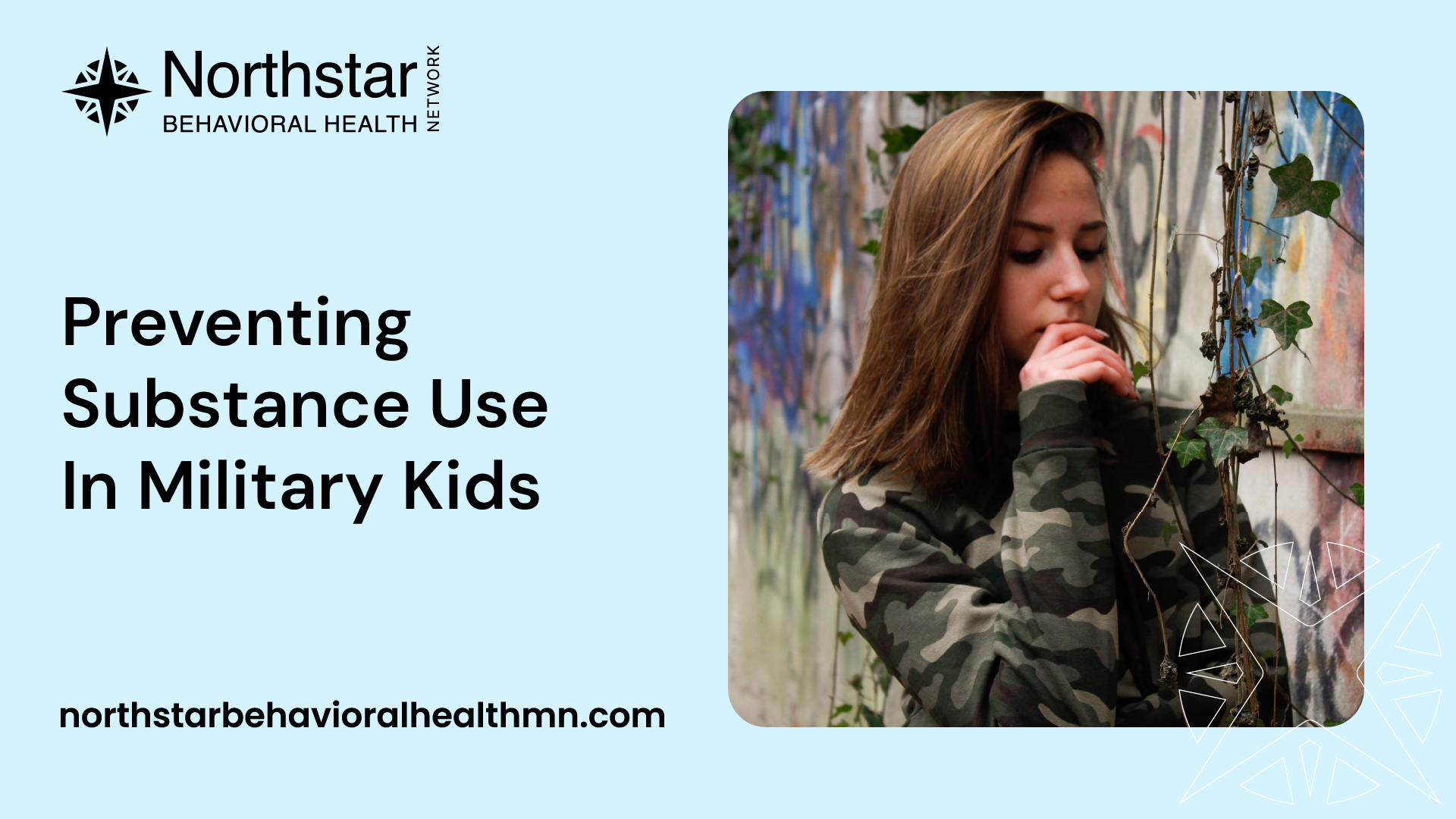
Substance Use Risk in Military Kids
Military kids, also known as children of military service members, face unique challenges that can contribute to an increased risk of substance use. Understanding this higher risk and the factors that contribute to it is crucial in order to provide appropriate support and prevention strategies.
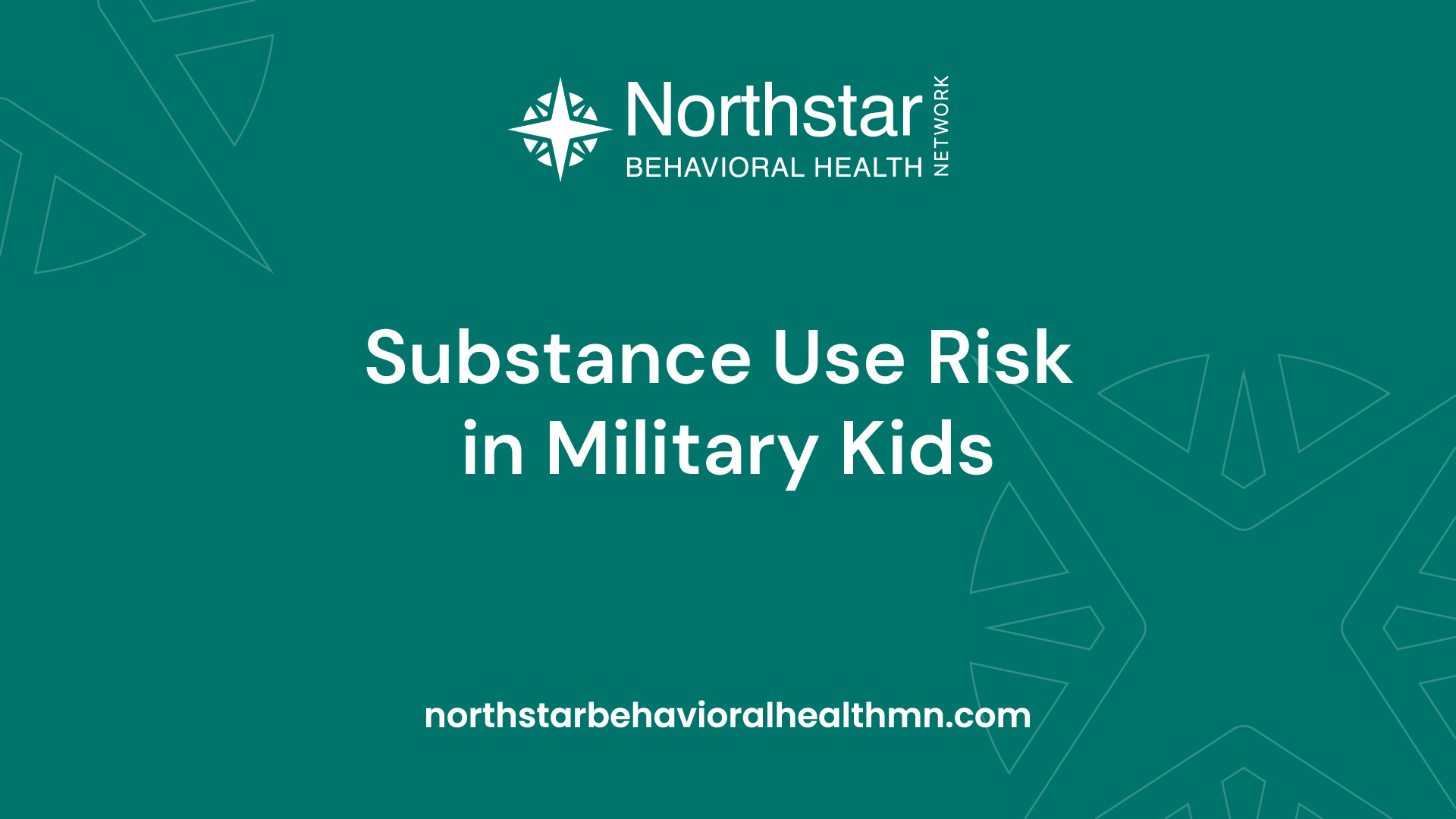
Understanding the Higher Risk of Substance Use in Military Kids
Research has shown that military kids are more likely to engage in substance use compared to their civilian counterparts. The stressful and unpredictable nature of military life can contribute to this higher risk. Frequent relocations, family separations, and the potential for a parent's deployment can disrupt the stability and support systems that help protect against substance use.
The constant exposure to stressors and the potential for trauma can also impact military kids' mental health, increasing their vulnerability to substance use as a coping mechanism. It's important to recognize that not all military kids will experience these challenges in the same way, as individual factors and resilience play a significant role.
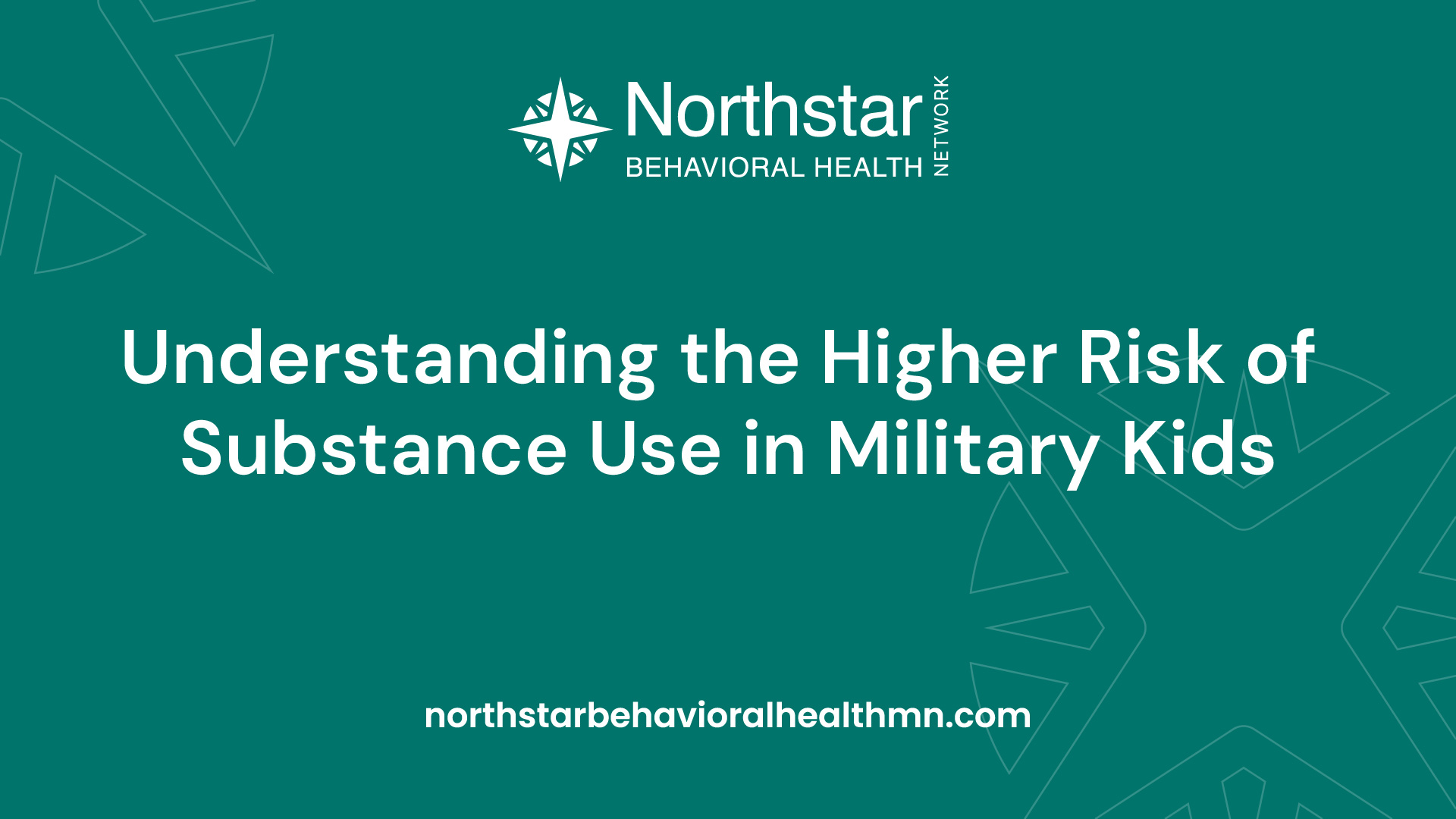
Factors Contributing to Substance Use Risk
Several factors contribute to the increased risk of substance use in military kids. These include:
- Family Dynamics: Military families may experience unique stressors, such as the emotional strain of deployments or frequent moves. These disruptions can impact family dynamics and increase the risk of substance use among military kids.
- Mental Health Challenges: The stressors associated with military life can take a toll on the mental health of both the service member and their family. Military kids may experience anxiety, depression, or other mental health issues, which can contribute to substance use as a way to self-medicate.
- Peer Influence: Military kids often form bonds with fellow military kids who understand their unique experiences. However, peer influence can also play a role in substance use. Being aware of the social dynamics and maintaining open communication with peers is essential.
- Access to Substances: Military kids may have increased access to substances due to their exposure to environments where substance use is more prevalent, such as military bases or communities with a higher substance use rate.
By understanding the higher risk of substance use in military kids and the contributing factors, we can develop effective prevention strategies and provide the necessary support systems to help them navigate these challenges. Building resilience in military kids and fostering open communication are key components of these strategies. For more information on building resilience, check out our article on resolving to be sober.
Impact on Military Kids
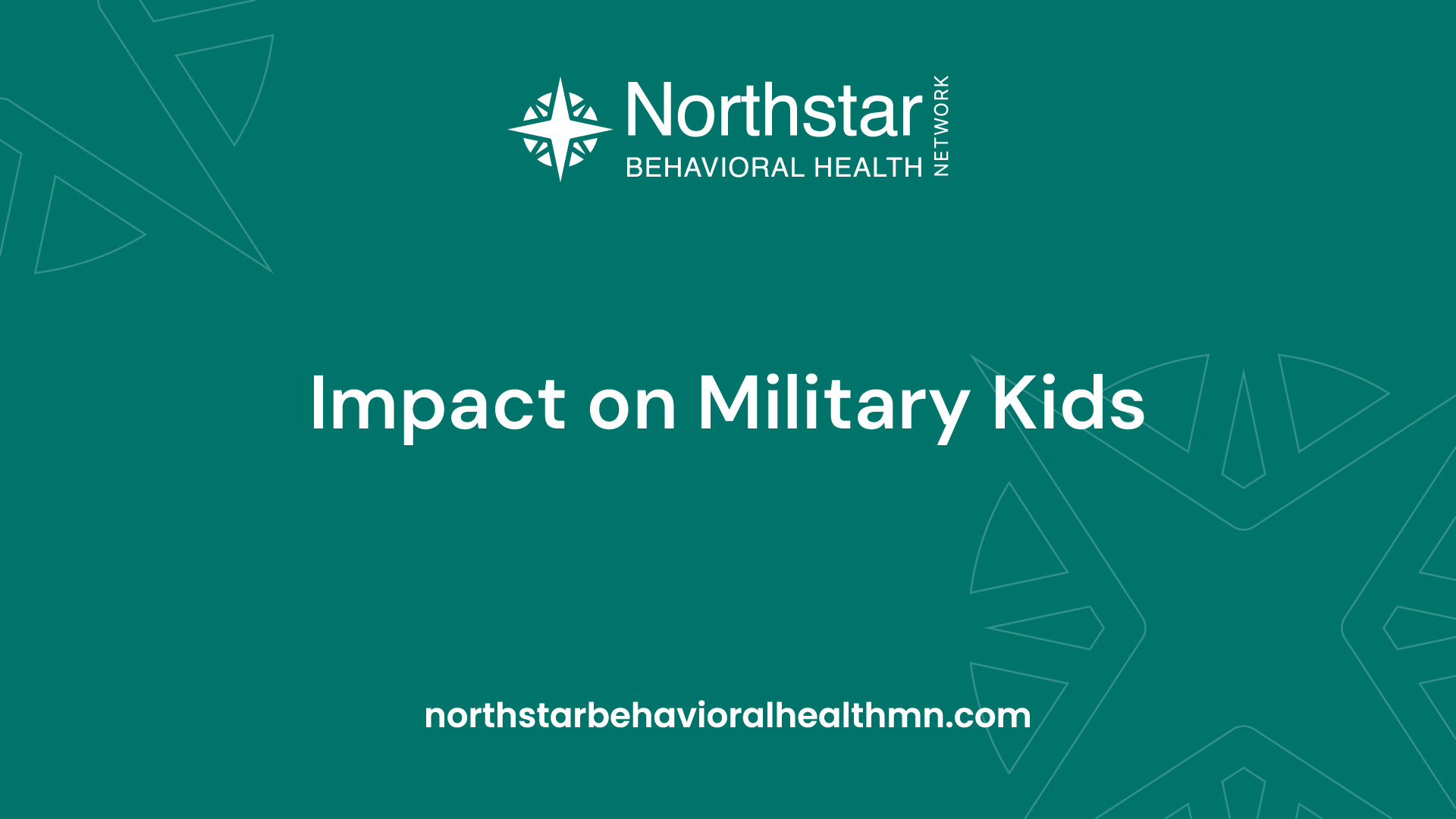
Growing up in a military family can bring unique challenges for children. These challenges can have a significant impact on their emotional well-being and increase their vulnerability to substance use. Understanding the emotional challenges faced by military kids and the coping mechanisms they employ is essential in addressing and preventing substance use.
Emotional Challenges Faced by Military Kids
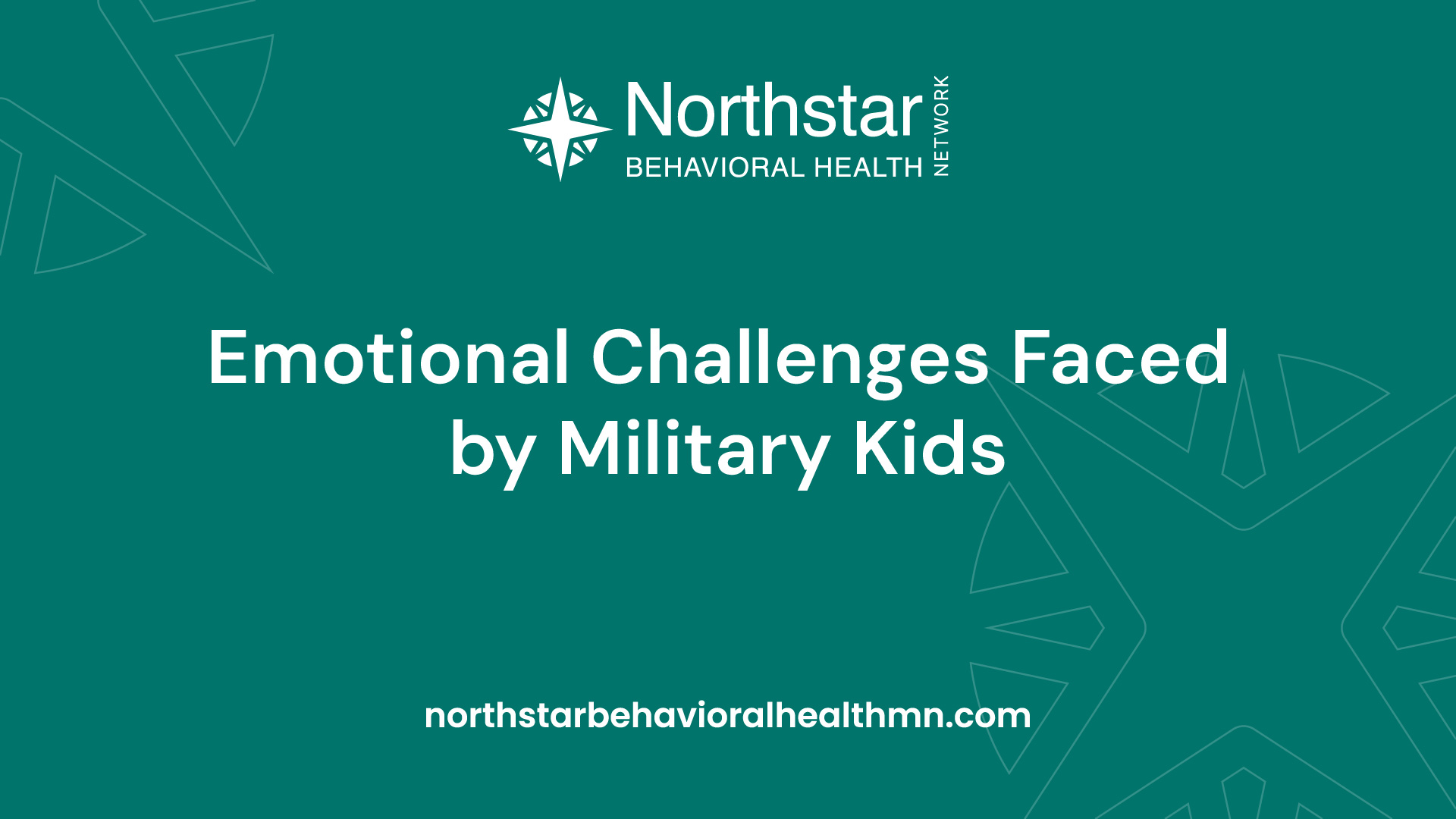
Military kids often experience frequent moves, separations from parents during deployments, and the uncertainty and stress that come with the military lifestyle. These factors can contribute to feelings of instability, loneliness, anxiety, and sadness among military kids. Coping with these emotions can be overwhelming, leading some children to turn to substances as a way to escape or numb their feelings.
It's important to note that not all military kids will experience emotional challenges or turn to substance use. However, research suggests that the risk for substance use is higher in this population due to the unique stressors they face. By recognizing and addressing these challenges, we can better support military kids in their journey towards a healthy and substance-free life.
Coping Mechanisms and Substance Use
Military kids may develop various coping mechanisms to navigate the emotional challenges they face. While some coping strategies can be healthy and adaptive, others, such as substance use, can be detrimental to their well-being.
Some common coping mechanisms used by military kids may include:
- Seeking support from friends and family
- Engaging in hobbies and activities they enjoy
- Developing resilience and adaptability skills
- Participating in support groups or counseling services
However, some military kids may turn to substances as a way to cope with their emotions. They may believe that substances provide temporary relief or help them escape the stressors they encounter. Unfortunately, relying on substances as a coping mechanism can lead to a cycle of addiction and further exacerbate the emotional challenges they face.
To prevent and address substance use, it is crucial to identify healthier coping strategies and provide support to military kids. Encouraging open communication, fostering a supportive environment, and providing access to counseling services and resources can help these children develop healthier coping mechanisms and reduce their risk of substance use.
By understanding the emotional challenges faced by military kids and the connection between coping mechanisms and substance use, we can take steps to support and guide them towards healthier and more effective ways of managing their emotions.
Strategies for Prevention
To address the higher risk of substance use in military kids, implementing preventive strategies is crucial. By focusing on building resilience and fostering open communication and support systems, we can help mitigate the risks associated with substance use.
Building Resilience in Military Kids
Building resilience in military kids is an essential strategy for preventing substance use. Resilience refers to the ability to adapt and bounce back from difficult situations. Military kids often face unique challenges, such as frequent moves, parental deployment, and the stress of military life. Strengthening their resilience can help them navigate these challenges without turning to substances.
One way to build resilience is by promoting a sense of connectedness and belonging. Encouraging military kids to engage in activities that interest them, such as sports, arts, or clubs, can help them develop a sense of identity and build relationships with peers who share similar experiences. Additionally, providing opportunities for them to participate in support groups or counseling can also enhance their resilience and coping skills.
For resources on building resilience, consider visiting our article on seek the sober life.
Open Communication and Support Systems
Open communication and support systems play a vital role in preventing substance use in military kids. It is essential to create an environment where kids feel comfortable expressing their thoughts, concerns, and emotions. Encouraging open dialogue about the challenges they face, including the risks associated with substance use, can help them make informed decisions and seek support when needed.
Establishing a support system is equally important. This can include family members, friends, teachers, or mentors who can provide guidance and encouragement. Support groups specifically designed for military kids can also be beneficial as they offer a safe space to share experiences and learn from one another.
Parents, guardians, and other adults in the lives of military kids should take an active role in fostering open communication and providing support. By being present, empathetic, and non-judgmental, they can create an environment where kids feel heard and understood. For more information on communicating with teens about substance use, take a look at our article on tips to talk to your college kid about substance use and spring break.
By implementing strategies focused on building resilience and fostering open communication and support systems, we can empower military kids to make healthy choices and reduce their risk of substance use. It is important to create an environment where they feel supported, understood, and equipped with the necessary tools to navigate the challenges they may encounter.
Seeking Help and Support
When it comes to overcoming substance use, seeking help and support is a crucial step in the journey towards recovery. For military kids who may be at a higher risk for substance use, recognizing the signs and accessing appropriate resources can make a significant difference in their path towards sobriety.
Recognizing Signs of Substance Use
Recognizing the signs of substance use in military kids is essential for early intervention. While the signs may vary depending on the individual, some common indicators include:
- Sudden changes in behavior or mood
- Decline in academic performance
- Loss of interest in activities once enjoyed
- Secretive behavior or frequent lying
- Neglecting personal hygiene
- Physical changes such as bloodshot eyes or frequent illness
It's important to keep in mind that these signs may not always indicate substance use, but they could be a cause for concern. If you suspect that a military kid is struggling with substance use, it's crucial to approach the situation with empathy and understanding.
Accessing Resources for Help
Thankfully, there are numerous resources available to support military kids in their journey towards sobriety. These resources can provide guidance, counseling, and treatment options tailored to their specific needs. Here are some avenues to consider:
- Military and Family Support Centers: These centers often offer counseling services, support groups, and educational programs for military families. They can provide valuable resources and referrals to specialized treatment programs.
- Substance Abuse and Mental Health Services Administration (SAMHSA): SAMHSA is a government agency that provides a national helpline, treatment locator, and a wealth of information on substance use and mental health. Their helpline can connect military kids with professionals who can guide them towards appropriate resources.
- School Counselors: School counselors can play a vital role in assisting military kids who are struggling with substance use. They can provide support, referrals, and work collaboratively with other professionals to develop an individualized plan.
- Support Groups: Joining support groups, such as Alcoholics Anonymous (AA) or Narcotics Anonymous (NA), can provide a sense of community and understanding to military kids facing substance use challenges. These groups offer a safe space for sharing experiences, receiving support, and learning from others who have overcome similar struggles.
Remember, seeking help and support is not a sign of weakness but rather a courageous step towards a healthier and sober life. By recognizing the signs of substance use and accessing the appropriate resources, military kids can find the guidance and assistance they need to overcome their challenges.
In the next section, we will explore strategies for overcoming substance use challenges and finding healthier alternatives. Stay tuned for tips on finding healthy outlets and setting goals for a sober lifestyle.
Overcoming Challenges
When faced with the challenges of substance use, it's important to develop strategies to overcome these obstacles. Military kids who are at a higher risk for substance use can take proactive steps to find healthier outlets and positive influences in their lives.
Finding Healthy Outlets and Alternatives
One effective way to overcome challenges related to substance use is to find healthy outlets and alternatives. Engaging in activities that provide fulfillment and enjoyment can help replace the desire for substance use. Military kids can explore various hobbies, sports, or creative pursuits that align with their interests. These activities not only serve as a distraction but also promote a sense of accomplishment and personal growth.
Finding support through group activities or clubs can also be beneficial. Joining organizations that focus on community service, leadership development, or peer support can foster a sense of belonging and provide a network of individuals who share similar interests and values. These positive social connections can help military kids navigate challenges and reduce the likelihood of turning to substance use.
Positive Role Models and Influences
Having positive role models and influences can make a significant difference in overcoming substance use challenges. Military kids can seek out individuals who inspire and motivate them to make healthier choices. This could be a family member, mentor, teacher, coach, or even a fellow military kid who has successfully overcome similar challenges.
Positive role models can provide guidance, support, and encouragement during difficult times. They can share their experiences, strategies, and coping mechanisms, inspiring military kids to believe in their own ability to overcome substance use. It's important for military kids to surround themselves with individuals who embody the values and behaviors they aspire to emulate.
By finding healthy outlets and alternatives and surrounding themselves with positive role models and influences, military kids can overcome the challenges associated with substance use. Remember, seeking help and support is a crucial step in the process. If you or someone you know is struggling with substance use, it's important to reach out to professionals and access the necessary resources. For more information on seeking help and support, refer to our article on accessing resources for help.
Moving Forward
Recovering from substance use and building a sober lifestyle is a journey that requires determination, support, and the setting of meaningful goals. For individuals looking to overcome their addiction and move towards a healthier, substance-free life, there are two key aspects to consider: setting goals for a sober lifestyle and building a strong support network.
Setting Goals for a Sober Lifestyle
Setting clear and achievable goals is an essential part of the recovery process. These goals provide a sense of direction and purpose, helping individuals stay motivated and focused on their journey towards sobriety. When setting goals for a sober lifestyle, it's important to consider the following:
- Specific Goals: Define your goals in specific terms. For example, instead of a vague goal like "I want to be sober," set a specific goal such as "I want to be substance-free for six months."
- Realistic Goals: Ensure that your goals are attainable and realistic. Setting unrealistic expectations can lead to frustration and discouragement. Start with smaller milestones and gradually work towards long-term goals.
- Measurable Goals: Establish goals that can be measured or tracked. This allows you to monitor your progress and celebrate achievements along the way. Consider using a journal or a recovery app to track your milestones.
- Time-Bound Goals: Set a timeline for your goals to create a sense of urgency and structure. This helps maintain focus and prevents procrastination. Remember to be flexible with yourself and adjust timelines if needed.
By setting goals for a sober lifestyle, you create a roadmap for yourself, providing direction and purpose in your recovery journey. Celebrate each milestone achieved, no matter how small, as it signifies progress towards a healthier, substance-free life.
Building a Strong Support Network
Building a strong support network is crucial for maintaining sobriety. Surrounding yourself with individuals who understand and support your journey can provide encouragement, accountability, and a sense of belonging. Here are some key steps to building a strong support network:
- Reach Out to Trusted Individuals: Identify family members, friends, or mentors who are supportive and understanding. Share your recovery goals and seek their support and guidance.
- Join Support Groups: Consider joining support groups or attending recovery meetings in your community. These groups provide a safe and non-judgmental environment where you can connect with others facing similar challenges. They can offer guidance, advice, and a sense of community.
- Therapy and Counseling: Seek professional help through therapy or counseling. A qualified therapist can provide guidance, tools, and coping strategies to help you navigate the challenges of recovery.
- Online Communities: Explore online recovery communities where you can connect with individuals who have similar experiences. These communities offer a platform for sharing stories, seeking advice, and providing support.
- Recovery Programs: Consider enrolling in a formal recovery program or treatment center. These programs provide a structured environment and access to professionals who can support your recovery journey.
Remember, building a support network takes time and effort. Surrounding yourself with positive influences and individuals who believe in your ability to overcome addiction can greatly enhance your chances of maintaining long-term sobriety.
Moving forward in your journey towards a sober lifestyle requires setting meaningful goals and establishing a strong support network. Celebrate your achievements, lean on your support system, and remember that recovery is a process. With determination, support, and a clear vision for your future, you can conquer your addiction and lead a fulfilling, substance-free life.

.jpg)




.jpg)

